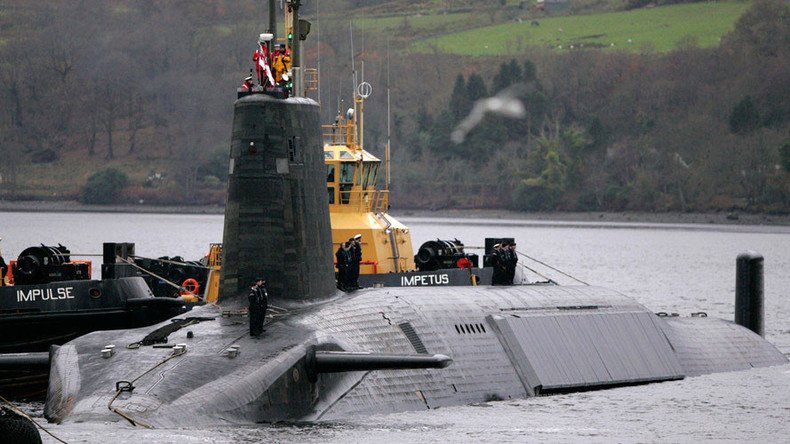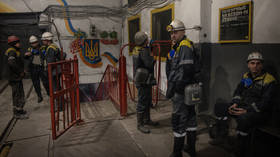Trident nuclear weapons replacement to cost £205bn, campaigners warn

Replacing Britain’s aging Trident nuclear deterrent will likely cost £205 billion (US$296 billion), more than doubling since it was calculated in 2014, disarmament campaigners warn.
Campaign for Nuclear Disarmament (CND) calculated the figure using the latest publicly-available data, answers to parliamentary questions and previous costs of relevant items including warheads.
CND noted the figure did not take into the account the fact Ministry of Defence (MoD) projects typically go over budget
Unbelievable that the cost to renew Trident Nuclear Weapons System is now at a staggering £205b @ScottishCND@CNDukpic.twitter.com/fwQEZjrBeF
— Margaret Ferrier MP (@MargaretFerrier) May 12, 2016
“These new calculations, drawn from actual government figures, show that the bill has spiraled beyond all expectations,” CND General-Secretary Kate Hudson said.
“£205 billion of public money is a huge amount. Pouring it into a nuclear weapons system that experts say could be rendered obsolete by new technology is hardly a wise choice. Far better to spend it on industrial regeneration, building homes, tackling climate change or meeting our defense needs in usable ways.”
READ MORE: Budgeting for Trident nukes robs the vulnerable of welfare – CND
The biggest expense by far is expected to be the day-to-day running costs. At £142 billion over the system’s lifetime, they amount to 6 percent of the total defense budget.
Other expenses include decommissioning old warheads, the continued lease of warheads from the US and future refurbishment.
MPs are preparing to vote on whether to replace the existing Trident fleet with four new submarines sometime this summer. While the Conservative government is strongly in favor of renewing the deterrent, Labour is divided over the issue. Labour leader Jeremy Corbyn is a lifelong pacifist and proponent of total nuclear disarmament.
The Scottish National Party (SNP) meanwhile is staunchly opposed to renewing the nuclear arsenal, which is situated north of the border at the Faslane submarine base.
Criticism of Trident has even come from within the Royal Navy itself. Former nuclear submariner William McNeilly was dishonorably discharged for compiling and publishing a report exposing multiple safety and security lapses at the base and on submarines themselves.
“I didn’t release my report to discredit the Royal Navy. I released my report because safety and security [at the Trident base] is not being taken seriously. Because it’s a risk to the people and a risk to the land,” he told RT in February.
“You don’t even need to be part of the Navy. Any logical, thinking person; anyone with half a functioning brain cell can understand the risks.”













